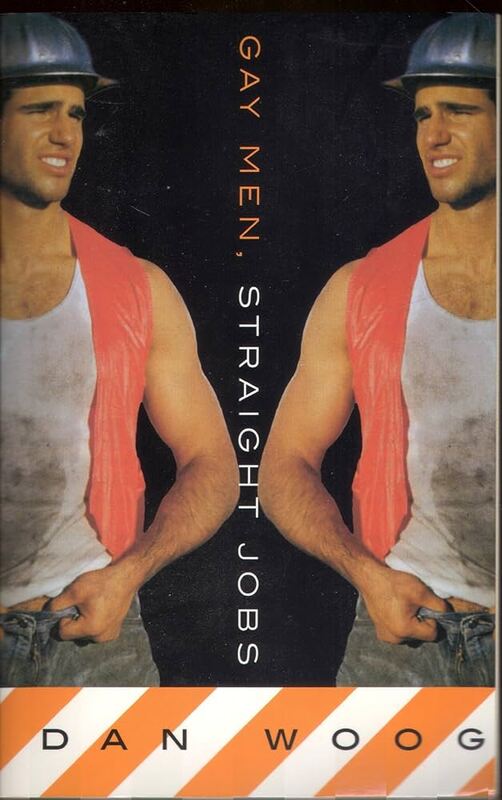Gay Men, Straight Jobs
Summary
In this collection of memoirs, spanning 231 pages, Dan Woog creates Gay Men, Straight Jobs. This book reveals a unique, gay perspective in male-led industries, which stereotypically, comes across as homophobic or anti-gay. Officially published in 2001 by Alyson Books, Gay Men, Straight Jobs opens the new century with openness and acknowledgment of struggles within these workplaces.
We hear many unique stories from different jobs with different levels of power. In addition, most of the stories come from people reflecting on their longtime experiences with the profession. Few are still new to the work environment and may not be fully out.
Analysis
Some gay men have a great fear of coming out in their industry. For example, “Doug” (an alias name), a prison guard, states, “that [the prison] environment is one where you need absolute, unquestioned trust in the person next to you, and gay people are simply not going to be trusted (Woog 24).” “Doug” is one of the people that have accepted their position and have found comfort due to fears of safety. Participants in Woog’s collection have a variety of reasons for not coming out. There are people like “Doug” who fear coming out will place their identity and life at stake, but there are also people like “Matt,” a mason, who believes that he would lose work opportunities and be ousted because he is gay. After reading these stories, it has become clear that many men, depending on their job, fear coming out due to loss of work opportunity, not necessarily being fired. They fear that they won’t be treated the same after. They find comfort in the current situation and find no reason to alter it for the potential of something that may only bring worse consequences. The consensus of stories that haven’t come out are okay with playing the part to keep their personal life, well, personal.
For the people who are open, may only be open to a couple of coworkers who are accepting, which brings some external comfort in the work environment. There are also those who have come out to their whole company. For the most part, their experiences have been positive. Many coworkers believe that work is about how you get the job done, not who you are. Keeping work life and personal life separate has helped some workers when coming out. Not making a big deal about and proving your worth elsewhere is the driving practice for coming out.
However, many of the people who have come out have been established in their job, either with power or with experience. There aren’t many stories of men coming out when new to the job. We don’t see stories of people starting out stating they’re gay. Paul Bloom, a doctor, sums this point perfectly by admitting to Dan Woog that he wouldn’t encourage young doctors coming out of residency to come out immediately. Rather, they should establish themselves as good doctors first. This point is heavily mentioned throughout the book. I think this message travels across many demographics. The point of a job is to get the work asked of you done. After that, you can put emphasis on who you are.
Cultural context
In terms of archiving, this book excels. Gay Men, Straight Jobs does a great job at giving big picture experiences and allowing readers to take what they want from the book. It acts like an archive. Using my class’s definition of an archive, Woog’s book is an organized collection of stories that share a common theme. In addition, Gay Men, Straight Jobs can be used for the purpose of researching, reporting, and referencing. Having this book within our archive gives depth to the fundamentals behind why gay works are to be archived. Throughout the 1900s, many gay works were diminished or changed to fit the conservative mindset. According to the film, The Celluloid Closet, gay stories were more a comedic take instead of an acceptance into the American society. It wasn’t until 1970s and 1980s where gay culture was more accepted. This book was released during the time of acceptance and the desire to make these characters more likeable. Although this book was published in 2001 and the stories date all the way back to the 1950s, there are many themes present in all these stories that are still present today.
With the development up until the time the book was made and the increases in normalcy today, the book demonstrates a time of history that flows seamlessly with the evolution of gay acceptance. The themes present in Gay Men, Straight Jobs, reflect these themes. As mentioned by Max Schneider, a doctor, writes, the world in the early and mid 1900s are described as a “cancer. It was such a feared, deadly disease that no one could talk about it out loud” (Woog 41). As we know today, being gay is not a cancer, nor has the capabilities of being carcinogenic. Nowadays, we still have a lot to work on, but there is much work that has been done in making gay lives more accepted into America and into our job industry.
Works Cited
Woog, Dan. Gay Men, Straight Jobs. Alyson Books, 2001.
Epstein, Rob and Jeffrey Friedman, directors. The Celluloid Closet, 1995.


